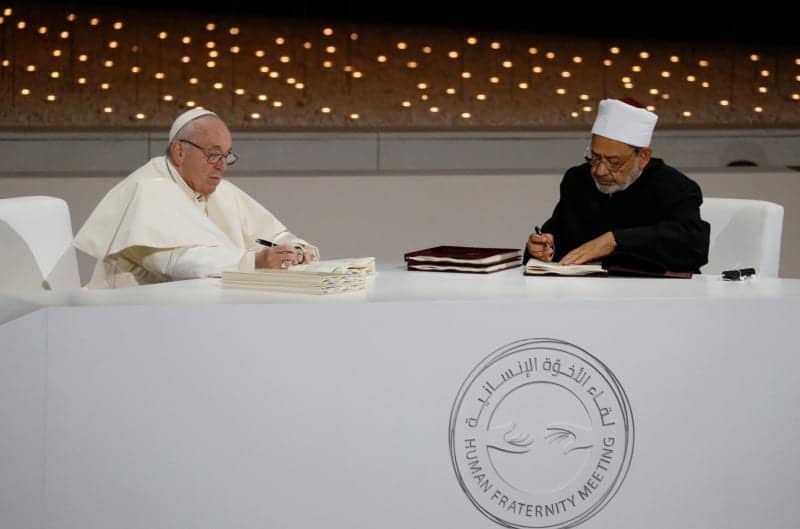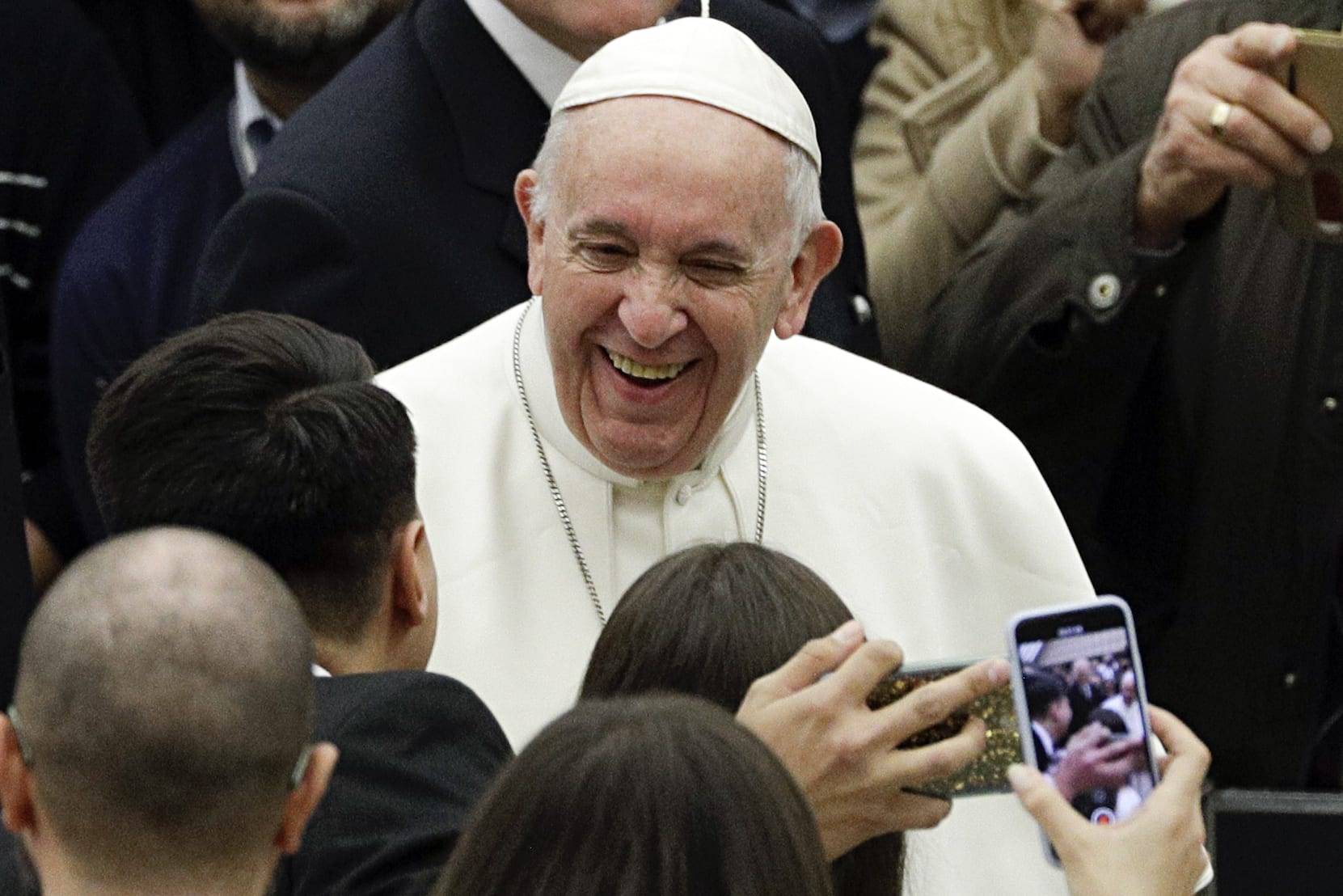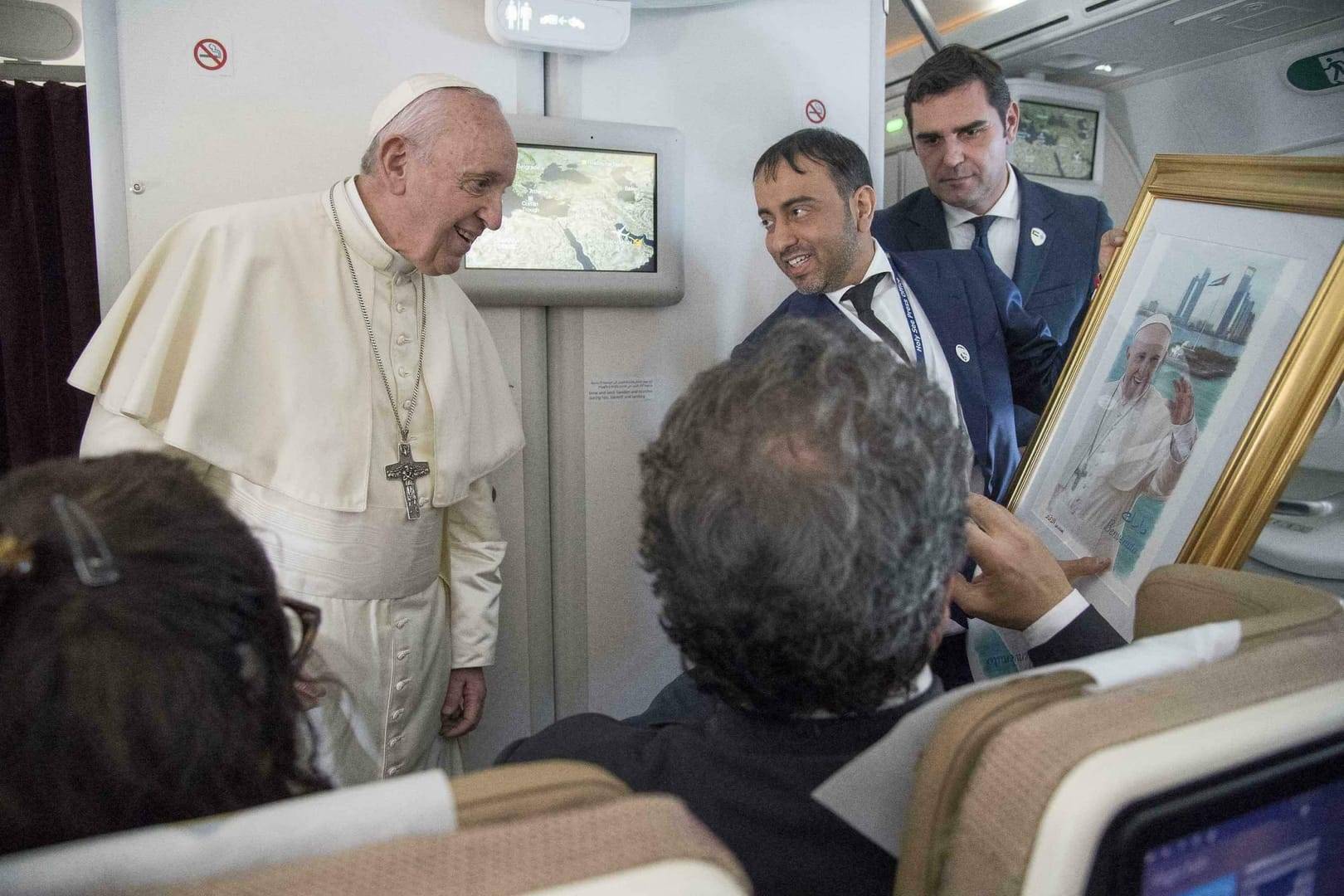ROME — Just before departing for a historic trip to the United Arab Emirates, Pope Francis touched on one of the thorny issues of the voyage: Yemen, which is considered by the United Nations as the worst man-made humanitarian crisis in the world, partially caused by the bombing of a coalition that included the Arab country he’s visiting.
“With great concern I follow the humanitarian crisis in Yemen,” Francis said on Sunday, after his weekly Angelus prayer in St. Peter’s Square. “The population is exhausted by the long conflict and a great many children suffer from hunger, without being able to access food supplies.”
“The cries of these young children reach out to God,” Francis said, urging the international community to honor agreements reached to ensure access to food, and invited the crowd in St. Peter’s Square to pray for Yemen and then to take those thoughts back home with them.
Soon after finishing his address, Francis headed to Rome’s international Fiumicino airport to board a flight that will take him to United Arab Emirates for the first-ever papal trip to the Arabian peninsula.
Though the trip has a mostly interreligious undertone, with the pontiff encountering the Grand Imam of Al-Azhar and the Muslim Council of Elders, he will dedicate Tuesday to the local Catholic community, which is mostly immigrant.
The local church falls under the Apostolic Vicariate of Southern Arabia, including United Arab Emirates, Oman and Yemen, and is headed by Swiss Bishop Paul Hinder.
Emirates is part of the coalition led by Saudi Arabia bombing Yemen where millions face starvation. Today, there’s a cease-fire agreed upon last December, but the roots of the devastating civil war backed by foreign intervention have not been addressed.
More than 20 million Yemenis – two thirds of the population – lack food security. Ten million are severely food insecure, more than twice the number of four years ago. More than half of Yemen’s districts have slipped into “emergency” conditions, which is one step below famine in the international classification.
“The cry of these children and their parents rises before God,” Francis said on Sunday, appealing to “interested parties and the international community to urgently promote compliance agreements reached, ensure the distribution of food and work for the benefit of the population.”
“I invite everyone to pray for the Yemen brothers,” he said.
During the days leading to the pope’s trip to UAE, the matter of Yemen came up, but it was unclear if the pontiff would have the opportunity to raise the issue himself during his visit, and this was noted by many observers, despite the fact that Francis has spoken up about it before.
In over 40 hours, he’ll only deliver two public speeches, one of them as the closing of an interreligious gathering and the second a homily, for the first-ever Mass held in a public space in the country.
By referring to Yemen quite literally as he was getting ready to board, he took pressure off the trip and delivered a clear message that despite the fraternal spirit of the trip, the man who’s repeatedly denounced a third world war being fought piecemeal, is not ready to brush Yemen under the rug.
Among other topics, he also noted that this Sunday Italians celebrate the Day for Life. He said he shared the message given by the bishops and encouraged ecclesial communities to “promote and sustain life,” especially the Movement for Life, that was present at the Angelus.
“A concrete commitment to fostering births is becoming increasingly necessary, one that involves the institutions and the various cultural and social realities, recognizing the family as the generative womb of society.”
In keeping with the theme of outreach to Islam of the UAE trip, the Vatican announced Sunday that Francis has granted a special award to a leading Muslim.
Mohamed Mahmoud Abdel Salam, former councilor of the Grand Imam of al-Azhar, has been granted the pontifical honor of “Commenda con Placca dell’Ordine Piano,” according to the Vatican announcement, in recognition of his “excellent work for interreligious dialogue and that of strengthening the relations between al-Azhar and the Catholic Church.”














